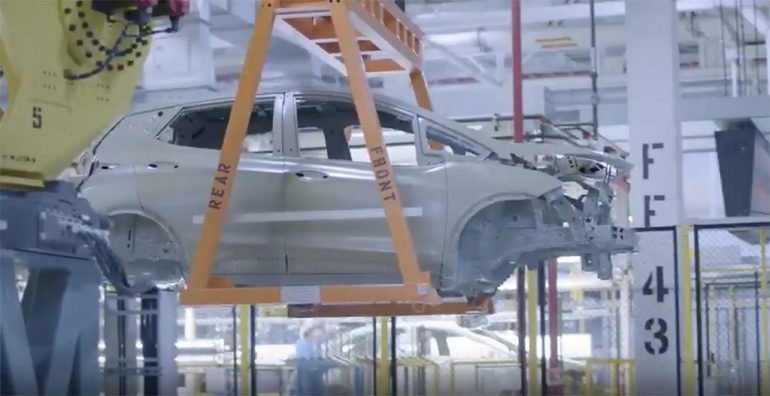
The Biden administration has unveiled a significant initiative aimed at accelerating the transition to electric vehicles (EVs) and supporting the American auto industry. Energy Secretary Jennifer Granholm announced that the government will provide a substantial financial boost to automakers and suppliers, offering a combination of $12 billion in grants and loans. This funding is intended to facilitate the retrofitting of existing manufacturing plants to produce electric and advanced vehicles, reflecting the administration’s commitment to both environmental sustainability and job retention.
Granholm emphasized the administration’s dedication to ensuring that this transition does not leave workers or communities behind. She stressed the importance of enabling workers to adapt to the evolving automotive landscape without undue disruption. As a former governor of Michigan, a state with deep ties to the auto industry, Granholm understands the significance of this initiative in regions heavily reliant on traditional automotive manufacturing.
This initiative also serves a strategic purpose for the White House, as it seeks to navigate the complex terrain of environmental regulations and the concerns of key stakeholders like automakers and labor unions, particularly the United Auto Workers (UAW). The UAW has voiced apprehensions about the rapid shift to EVs, fearing that it could jeopardize thousands of jobs in states such as Michigan, Ohio, Illinois, and Indiana. Notably, UAW members recently voted in favor of authorizing a strike at major Detroit automakers if agreements on wages and pension plans are not reached.
Secretary Granholm acknowledged the ongoing negotiations but expressed uncertainty about the initiative’s direct impact on collective bargaining. The administration has been engaged in discussions with automakers, auto workers, and affected communities to address these concerns.
President Joe Biden views this initiative as an opportunity to foster a clean energy economy that benefits both auto companies and unionized workers, acknowledging the pivotal role that the auto industry has played in the American economy for decades.
One specific case that has garnered attention is the Jeep factory in Belvidere, Illinois, operated by Stellantis. The factory had faced closure, but with the possibility of government aid, its fate remains uncertain. Granholm noted that plants closely integrated into their communities are well-positioned to leverage these funding opportunities.
Crucially, while there are no specific labor requirements for companies seeking funding, the administration intends to prioritize projects that uphold favorable labor conditions. This approach aligns with the broader goal of supporting workers and ensuring a just transition to a cleaner automotive industry.
In addition to the funding for automakers and suppliers, the administration also plans to offer $3.5 billion in support to domestic battery manufacturers. This comprehensive approach aims to bolster both the supply chain for advanced vehicles and the critical battery technology necessary for their success.
Funding for these initiatives will be drawn from various sources, including $2 billion in grants from the Inflation Reduction Act, passed by Democrats last year, and $10 billion in loans from the Energy Department’s Loans Program Office. These financial incentives are expected to catalyze a transformative shift in the American auto industry, aligning it with the administration’s ambitious clean energy goals while safeguarding jobs and communities dependent on traditional manufacturing.
Source: Reuters

Mike Floyd is a finance executive by trade and a car enthusiast at heart. As a CFO with a keen eye for detail and strategy, Mike brings his analytical mindset to the automotive world, uncovering fresh insights and unique perspectives that go beyond the surface. His passion for cars—especially his favorite, the Porsche 911, fuels his contributions to Automotive Addicts, where he blends a love for performance and design with his professional precision. Whether he’s breaking down industry trends or spotlighting emerging innovations, Mike helps keep the site both sharp and forward-thinking.